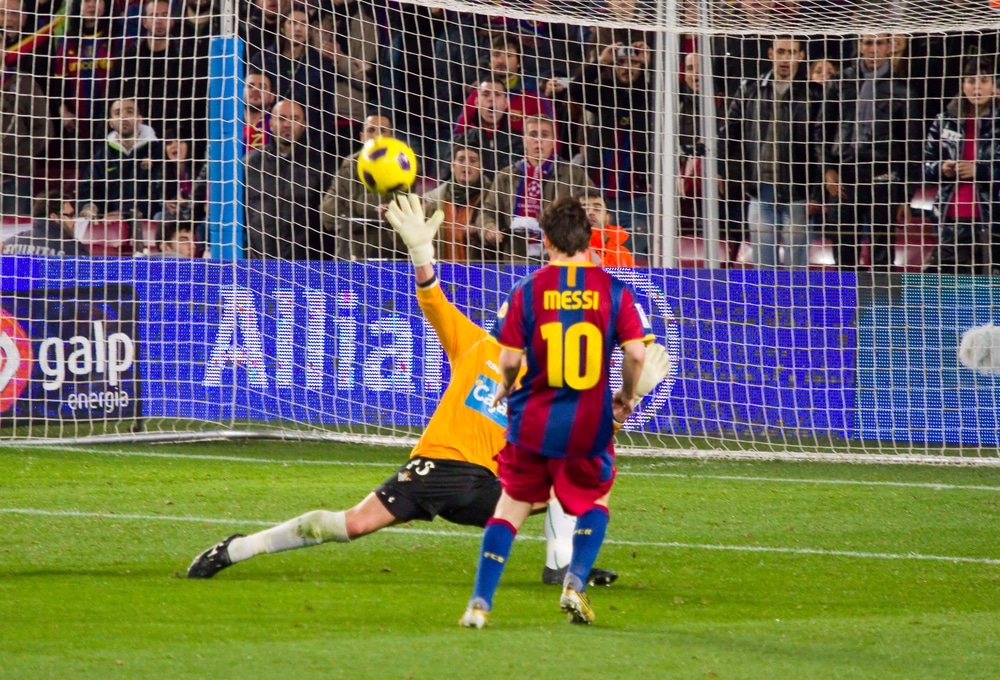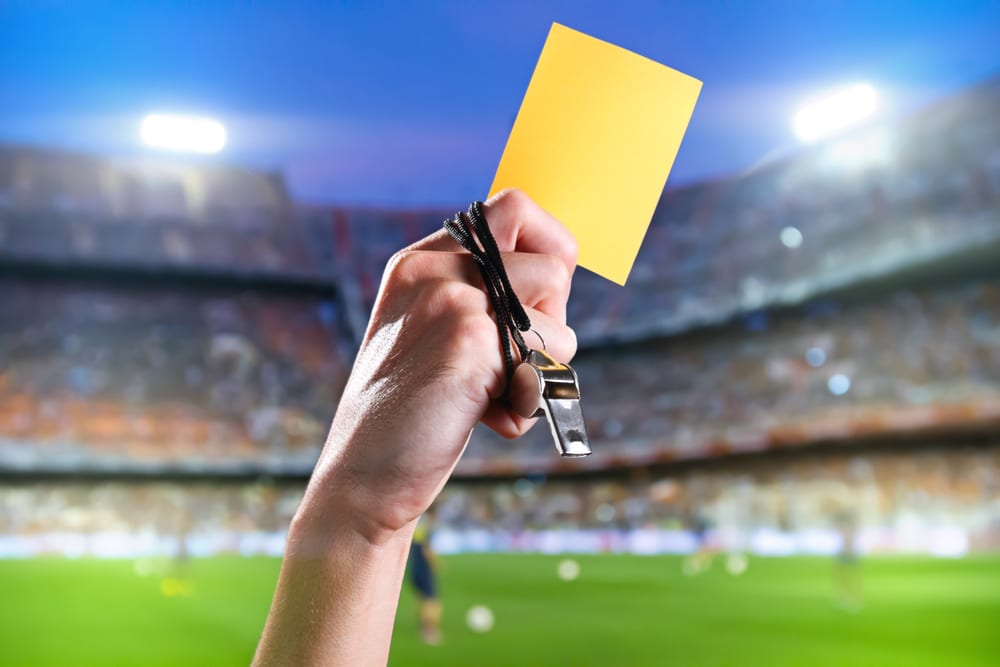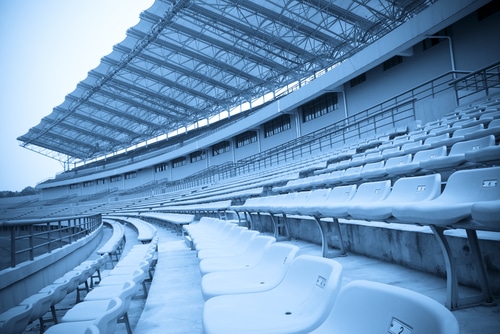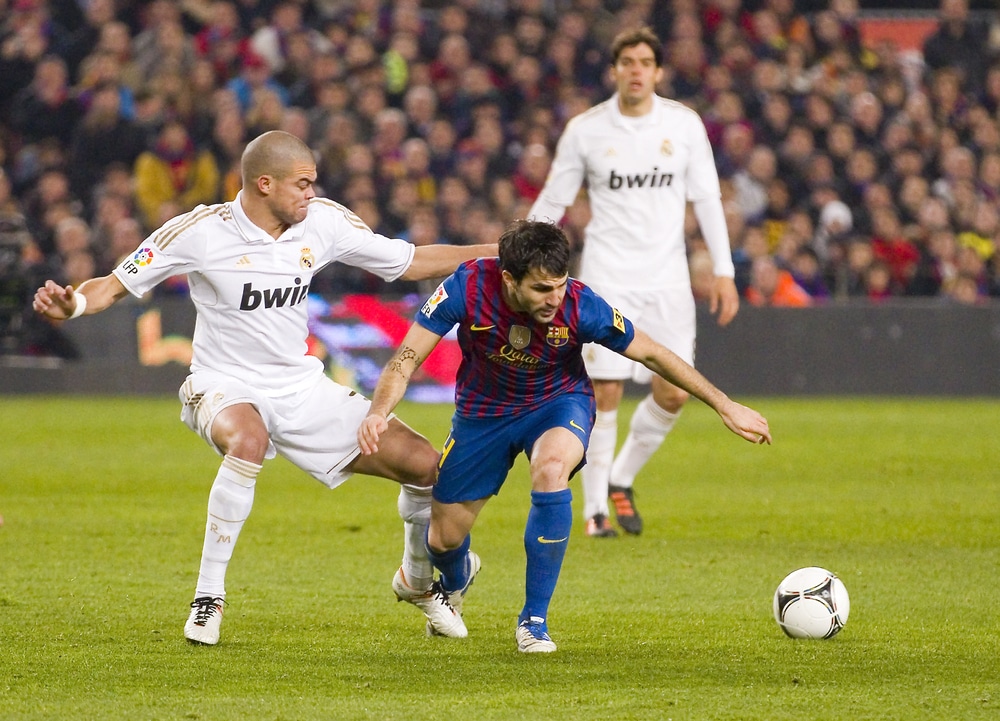
Common Soccer Terms in Spanish (Audio Included)
If you already know greetings, travel phrases, and idioms in Spanish, then it’s time to take the next step.
To connect with Spanish speakers, what could be better than being able to talk about fútbol?
(We should note that like most Spanish words, football/soccer vocabulary varies by region. So depending on where you are, you might hear different words being used.)
In this guide, I’ll show you some of the most common soccer terms in Spanish, including game-related words, clothing vocabulary, and more!
Contents
- Soccer Positions in Spanish
- Soccer Game Terminology in Spanish
- Soccer Stadium Vocabulary in Spanish
- Soccer Verbs in Spanish
- Soccer Clothing Vocabulary in Spanish
- And One More Thing…
Download: This blog post is available as a convenient and portable PDF that you can take anywhere. Click here to get a copy. (Download)
Soccer Positions in Spanish
- El goleador — Goal scorer
- El portero / El arquero — Goalkeeper
- El delantero / El atacante — Forward; attacker
- El delantero central — Center-forward, also known as a striker, because their principal role is to score goals.
- El centrocampista — Midfielder
- El mediocampista — Central midfielder
- El volante — Winger
- El defensor — Defender
- La árbitro — Referee
- El suplente / El reemplazo / El sustituto — Replacement player; substitute
Example Sentences:
El portero de Argentina es el mejor pagado de Suramérica. (Argentina’s goalkeeper is the best paid in South America.)
El delantero de Real Madrid metió un gol para empatar el juego. (The forward of Real Madrid scored a goal to tie the game.)
Portugal acaba de meter el gol de empate contra los Estados Unidos en el último minuto. (Portugal just scored an equalizer against the United States in the last minute.)
Soccer Game Terminology in Spanish
- La tarjeta amarilla — Yellow card
- La tarjeta roja — Red card
- El clásico — Classic game; Derby between Real Madrid and FC Barcelona/also used in Spanish to describe any important match-up
- El tiro de esquina — Corner kick
- El saque inicial — Kick-off
- La falta — Foul
- Fuera de lugar — Offside
- El partido — Football match, soccer game
- El partido en casa / El partido local — Home game; home match
- El partido fuera de casa / El partido visitante — Away game; away match
- El empate — Draw, tie
- El gol de empate — Equalizer (goal that ties the score)
- El medio tiempo — Half-time
- El tiro libre — A free kick
- El tiempo adicional — Additional time; injury time
- El tiempo extra — Overtime; extra-time (be careful, this is different from tiempo adicional!)
- El lanzamiento de penales — Penalty shoot-out
- El saque lateral — Throw-in
Example Sentences:
Se fueron a tiempo adicional por tantas faltas cometidas durante el partido. (They went into additional time because so many fouls were committed during the game.)
El jugador hizo un buen saque lateral. (The player did a good throw-in.)
El equipo no ha ganado ningún partido fuera de casa este año. (The team hasn’t won any away game this year.)
Soccer Stadium Vocabulary in Spanish
- El estadio — Stadium
- Las gradas / Los asientos — Stands/Seats
- La línea de banda — Sideline or touchline
- El espectador — Spectator
- La público — Public
- La cancha de fútbol — Pitch; field
- Los vestidores — Locker rooms; dressing rooms
- La tribuna principal — Main stand
- El palco de honor — VIP box
- El túnel de acceso — Access tunnel
- El área de prensa — Press area
- La zona de concesiones — Concession area
- La zona de calentamiento — Warm-up area
Example Sentences:
Todos los asientos del estadio están vendidos por el clásico del domingo. (The stadium seats are sold out for Sunday’s classic game.)
El partido fue cancelado porque la cancha de fútbol estaba en malas condiciones. (The game was cancelled because the soccer field was in bad condition.)
Los espectadores están muy ansiosos por el Mundial. (The spectators are very anxious for the World Cup.)
Soccer Verbs in Spanish
- Jugar — To play
- Regatear — To dribble
- Defender — To defend
- Atacar — To attack
- Ganar — To win
- Perder — To lose
- Meter un gol — To score a goal
- Centrar — To center
- Sacar la pelota de la zona defensiva — To clear the ball from the defensive zone
- Dar un cabezazo — To do a header
- Pasar — To pass
- Derribar — To tackle
- Patear / Tirar — To shoot
- Estar en la banca —To be on the bench
Example Sentences:
Para meter un gol, hay que centrar bien la pelota. (To score a goal, you have to center the ball correctly.
El arquero pateó el balón muy fuerte y lo tiró fuera de la cancha. (The goalkeeper kicked the ball very hard and shot it off the field.)
Dio un cabezazo y metió el gol de empate. (He did a header and scored the equalizer.)
Soccer Clothing Vocabulary in Spanish
- La camiseta — Jersey
- Los pantalones cortos — Shorts
- Los botines de fútbol — Soccer boots
- Los calcetines — Socks
- Los botines — Cleats
- El uniforme — Uniform
- El chándal — Tracksuit
- Los guantes — Gloves
- La gorra — Cap
- El protector bucal — Mouthguard
- Las espinilleras — Shin guards
Example Sentences:
Los botines de fútbol son esenciales para jugar en el campo. (Soccer boots are essential for playing on the field.)
La camiseta del equipo nacional es un símbolo de orgullo para todos los aficionados. (The national team jersey is a symbol of pride for all the fans.)
Los pantalones cortos son cómodos y permiten una mayor libertad de movimiento durante el partido de fútbol. (Shorts are comfortable and allow greater freedom of movement during a soccer match.)
So, now you have all the soccer terms in Spanish you need to spark up a conversation about the sport! Study these vocabulary words in context on the FluentU program, where you can see them in use by native Spanish learners in short videos.
FluentU takes authentic videos—like music videos, movie trailers, news and inspiring talks—and turns them into personalized language learning lessons.
You can try FluentU for free for 2 weeks. Check out the website or download the iOS app or Android app.
P.S. Click here to take advantage of our current sale! (Expires at the end of this month)

And if you want to learn even more about how to talk about sports in Spanish, you can check out this vocabulary list here.
Download: This blog post is available as a convenient and portable PDF that you can take anywhere. Click here to get a copy. (Download)
And One More Thing…
If you've made it this far that means you probably enjoy learning Spanish with engaging material and will then love FluentU.
Other sites use scripted content. FluentU uses a natural approach that helps you ease into the Spanish language and culture over time. You’ll learn Spanish as it’s actually spoken by real people.
FluentU has a wide variety of videos, as you can see here:

FluentU brings native videos within reach with interactive transcripts. You can tap on any word to look it up instantly. Every definition has examples that have been written to help you understand how the word is used. If you see an interesting word you don’t know, you can add it to a vocab list.

Review a complete interactive transcript under the Dialogue tab, and find words and phrases listed under Vocab.

Learn all the vocabulary in any video with FluentU’s robust learning engine. Swipe left or right to see more examples of the word you’re on.

The best part is that FluentU keeps track of the vocabulary that you’re learning, and gives you extra practice with difficult words. It'll even remind you when it’s time to review what you’ve learned. Every learner has a truly personalized experience, even if they’re learning with the same video.
Start using the FluentU website on your computer or tablet or, better yet, download the FluentU app from the iTunes or Google Play store. Click here to take advantage of our current sale! (Expires at the end of this month.)










